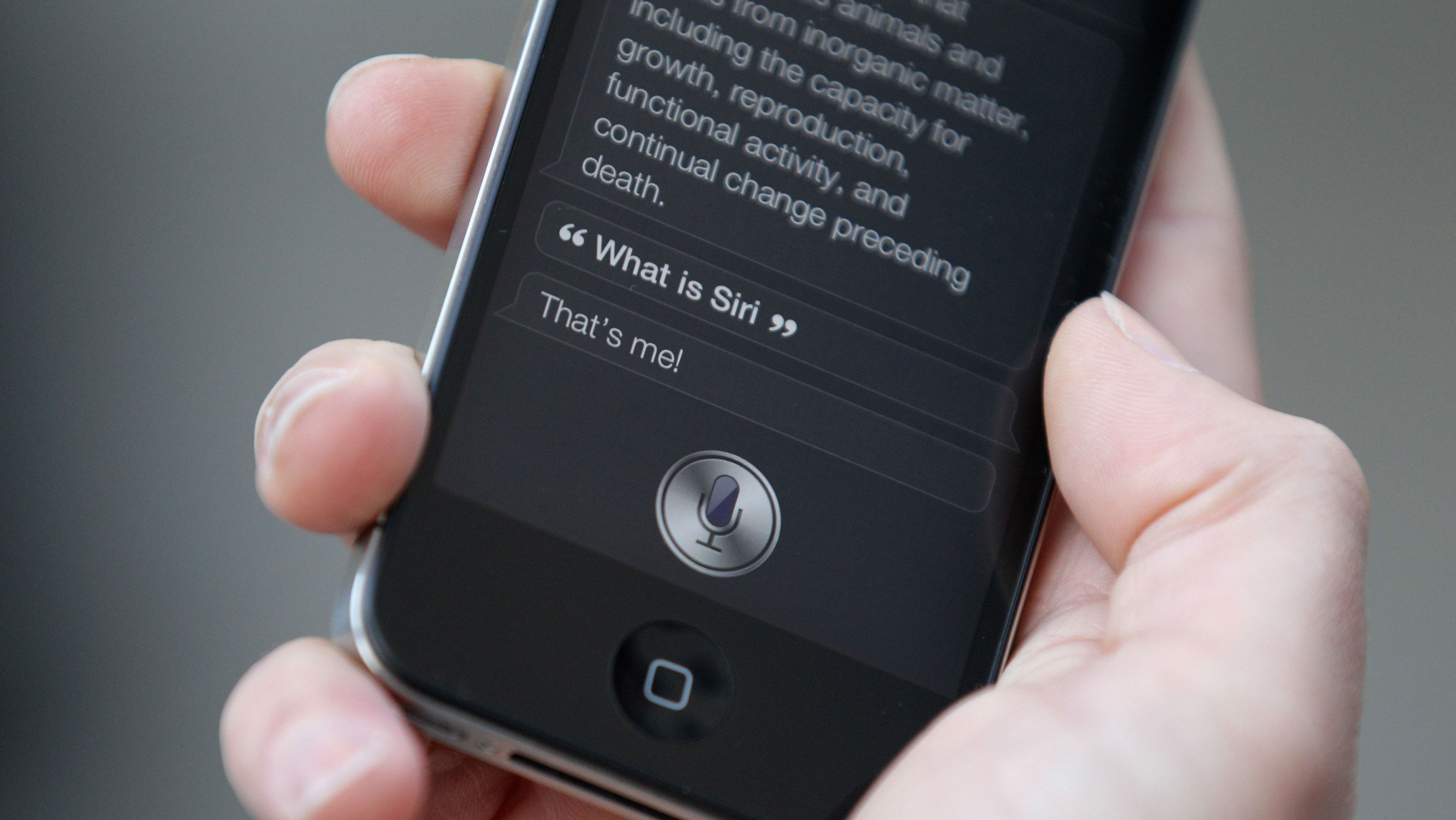Language-learning apps speak the right lingo for UK subscribers
Locked-down Brits turn to online lessons as a new hobby and way to upskill

A free daily email with the biggest news stories of the day – and the best features from TheWeek.com
You are now subscribed
Your newsletter sign-up was successful
Language-learning apps have enjoyed a global boom over the past 12 months - with the UK leading the way in the push to learn new lingos.
Britain is “not renowned for its population’s skill or enthusiasm at learning a foreign language”, notes the BBC. But apps such as Duolingo, Busuu and Babbel have seen a huge rise in UK subscribers, as increasing numbers of people look for other ways to fill their time beyond watching TV or reading books.
Many are keen to learn a new language as a hobby, while others are looking to boost their employment prospects. And that translates into big business for apps that support such learning.
The Week
Escape your echo chamber. Get the facts behind the news, plus analysis from multiple perspectives.

Sign up for The Week's Free Newsletters
From our morning news briefing to a weekly Good News Newsletter, get the best of The Week delivered directly to your inbox.
From our morning news briefing to a weekly Good News Newsletter, get the best of The Week delivered directly to your inbox.
Hola to new UK users
US firm Duolingo says its new user numbers rose by 132% in the UK last year compared with 2019 - almost double the average increase worldwide. The app now has 13 million UK users.
Meanwhile, London-based Busuu saw a 312% increase in UK subscribers, to reach a total of more than three million.
And Berlin-based Babbel says its UK user registrations increased by 80%, compared with a 50% rise worldwide, with around ten million customers globally.
A free daily email with the biggest news stories of the day – and the best features from TheWeek.com
Babbel chief executive Arne Schepker told the BBC that the most popular languages for the app’s UK users were Spanish and French.
“When a lot of Brits say that they are not very good at language learning, that’s the first thing that we don’t see in our data,” Schepker said.
“[For Britons], both learning engagement and how much you learn - how easy you find it to build a learning habit, the amount of mistakes and the amount of progress that you make through our material - is absolutely competitive in the international environment.”
Duolingo UK general manager Colin Watkins believes that Brexit, Covid and the Olympics are among the key factors driving the increased interest in languages.
“Brits now want to be better citizens of the world when we travel, when we do business, when we meet people in the UK,” he said.
“The UK now sees real value in learning a language for fun, not because they have to. People are learning because of culture, brain training, family, and relationships, along with school and travel. We want a positive use of our time, and to do something productive on our phones. Covid gave people the stimulus to do this.”
The Brexit factor
The Guardian reported in December that the number of Britons learning foreign languages “has risen twice as fast as the rest of the world in the last year”. One in ten adults in the UK signed up to take online language lessons during the first lockdown, last spring.
According to app providers, one of the fastest-growing groups is those learning French.
“Thousands more are learning Spanish, German, Italian, or other EU languages – with some of them hoping to improve their language skills to a level where they qualify for citizenship of a European country,” adds the newspaper.
UK-based Spanish teacher Maria Lievano agrees that Brexit is likely to be a key reason for the trend.
Increasing numbers of Brits “want to give themselves the opportunity to work in, or do business with, other countries now Britain has left the EU”, she told the BBC.
“So with many people at home furloughed, or redundant, this period gave them time to evaluate their future career options, whether to look for work abroad or to improve their skill set,” Lievano continued.
“And for others, perhaps learning a foreign language is simply a way to dream of the holiday they can’t go on due to the pandemic.”
Mike Starling is the former digital features editor at The Week. He started his career in 2001 in Gloucestershire as a sports reporter and sub-editor and has held various roles as a writer and editor at news, travel and B2B publications. He has spoken at a number of sports business conferences and also worked as a consultant creating sports travel content for tourism boards. International experience includes spells living and working in Dubai, UAE; Brisbane, Australia; and Beirut, Lebanon.
-
 The ‘ravenous’ demand for Cornish minerals
The ‘ravenous’ demand for Cornish mineralsUnder the Radar Growing need for critical minerals to power tech has intensified ‘appetite’ for lithium, which could be a ‘huge boon’ for local economy
-
 Why are election experts taking Trump’s midterm threats seriously?
Why are election experts taking Trump’s midterm threats seriously?IN THE SPOTLIGHT As the president muses about polling place deployments and a centralized electoral system aimed at one-party control, lawmakers are taking this administration at its word
-
 ‘Restaurateurs have become millionaires’
‘Restaurateurs have become millionaires’Instant Opinion Opinion, comment and editorials of the day
-
 How cybercriminals are hacking into the heart of the US economy
How cybercriminals are hacking into the heart of the US economySpeed Read Ransomware attacks have become a global epidemic, with more than $18.6bn paid in ransoms in 2020
-
 Brexit-hobbled Britain ‘still tech powerhouse of Europe’
Brexit-hobbled Britain ‘still tech powerhouse of Europe’Speed Read New research shows that UK start-ups have won more funding than France and Germany combined over past year
-
 Playing Cupid during Covid: Tinder reveals Britain’s top chat-up lines of the year
Playing Cupid during Covid: Tinder reveals Britain’s top chat-up lines of the yearSpeed Read Prince Harry, Meghan Markle and Dominic Cummings among most talked-about celebs on the dating app
-
 Brits sending one less email a day would cut carbon emissions by 16,000 tonnes
Brits sending one less email a day would cut carbon emissions by 16,000 tonnesSpeed Read UK research suggests unnecessary online chatter increases climate change
-
 Reach for the Moon: Nokia and Nasa to build 4G lunar network
Reach for the Moon: Nokia and Nasa to build 4G lunar networkSpeed Read Deal is part of the US space agency’s plan to establish human settlements on the lunar surface
-
 iPhone 12 launch: what we learned from the Apple ‘Hi, Speed’ event
iPhone 12 launch: what we learned from the Apple ‘Hi, Speed’ eventSpeed Read Tech giant unveils new 5G smartphone line-up
-
 Russian agency behind US election meddling ‘created fake left-wing news site’
Russian agency behind US election meddling ‘created fake left-wing news site’Speed Read Facebook says real reporters were hired by fake editors to write about US corruption
-
 Whistle-blower claims Apple ‘ignoring and violating’ users’ rights
Whistle-blower claims Apple ‘ignoring and violating’ users’ rightsSpeed Read Former contractor says tech giant has failed to act on his disclosures about ‘intimate’ Siri recordings